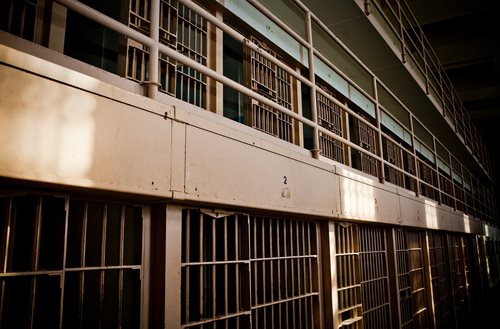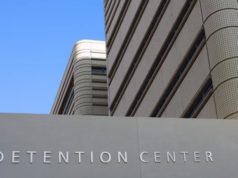
A Comprehensive Overview of the North Carolina Department of Corrections
Introduction
The North Carolina Department of Corrections (NCDOC) plays a pivotal role in the state’s criminal justice system, overseeing the incarceration, rehabilitation, and reintegration of individuals involved in the criminal justice system. As one of the largest and most complex state agencies in North Carolina, the NCDOC faces numerous challenges and responsibilities in ensuring public safety while striving to reduce recidivism rates and promote offender rehabilitation. This article will delve into the history, organization, functions, challenges, and recent developments of the North Carolina Department of Corrections.
Historical Context
The origins of the North Carolina Department of Corrections can be traced back to the establishment of the state’s first penitentiary in Raleigh in 1868. This marked the beginning of a formalized prison system in North Carolina, which was characterized by a focus on punishment rather than rehabilitation. In the ensuing decades, the state prison system continued to grow, reflecting the changing philosophies and approaches to corrections.
It wasn’t until the mid-20th century that North Carolina began to shift its focus towards rehabilitation and the reintegration of offenders into society. The NCDOC underwent significant reforms during this period, aligning its goals with broader societal shifts towards more humane and evidence-based approaches to corrections.
Organization and Structure
The North Carolina Department of Corrections is a massive state agency responsible for overseeing a wide range of functions related to corrections and criminal justice. The department is organized into several divisions, each with specific responsibilities:
- Division of Adult Correction and Juvenile Justice (ACJJ): This division oversees adult and juvenile offenders in North Carolina. It includes both prisons and community corrections programs. ACJJ is further divided into multiple units, including the Division of Prisons and the Division of Community Corrections.
- Division of Adult Prisons: This unit manages the state’s prison facilities, ensuring the safe and secure incarceration of adult offenders. It also focuses on offender rehabilitation and reentry programs to reduce recidivism.
- Division of Community Corrections: This division supervises individuals on probation and parole, providing support and monitoring to aid in their successful reintegration into society.
- Division of Juvenile Justice: Responsible for the care, custody, and rehabilitation of juvenile offenders, this division aims to divert youth from a life of crime and provide them with the necessary resources for positive development.
- Division of Health Services: Ensures that incarcerated individuals receive adequate medical, mental health, and dental care while in custody.
- Division of Alcoholism and Chemical Dependency Programs: Focuses on providing substance abuse treatment and support to offenders with addiction issues.
- Division of Prerelease and Reentry Services: Prepares offenders for their release into the community, providing resources and programs to facilitate a successful transition.
Challenges and Issues
Despite the NCDOC’s efforts to promote rehabilitation and reentry, it faces numerous challenges and issues that impact its ability to achieve its goals. Some of the key challenges include:
- Overcrowding: Like many state prison systems, the NCDOC has struggled with issues related to prison overcrowding. Overcrowding can strain resources and limit the effectiveness of rehabilitation programs.
- Recidivism: Reducing recidivism rates remains a significant challenge. The department must continually develop and implement evidence-based programs that address the underlying causes of criminal behavior.
- Budgetary Constraints: Corrections is a costly endeavor, and budgetary constraints can hinder the implementation of effective programs and services.
- Staffing Issues: Ensuring a qualified and well-trained workforce is essential for the safe and effective operation of prisons and community corrections programs.
- Mental Health and Substance Abuse: Many incarcerated individuals have mental health or substance abuse issues that require specialized treatment and care.
- Racial Disparities: Like many state correctional systems, North Carolina has grappled with racial disparities in its criminal justice system. Addressing these disparities is an ongoing challenge.
Recent Developments and Initiatives
In recent years, the North Carolina Department of Corrections has implemented various initiatives and reforms aimed at addressing the aforementioned challenges and improving the overall state of corrections in the state:
- Justice Reinvestment Act: In 2011, North Carolina enacted the Justice Reinvestment Act, which aimed to reduce prison populations, lower recidivism rates, and reinvest savings into community-based programs. This initiative has led to the expansion of diversion programs and increased support for reentry services.
- Mental Health and Substance Abuse Treatment: The department has increased its focus on providing mental health and substance abuse treatment within correctional facilities, recognizing the need to address underlying issues that contribute to criminal behavior.
- Educational and Vocational Programs: Educational and vocational programs within prisons have expanded, helping offenders acquire skills that can improve their chances of successful reintegration into society.
- Community Engagement: The NCDOC has sought to enhance community engagement and collaboration to support reentry efforts. This includes partnerships with local organizations and nonprofits.
- Staff Training: Ensuring that correctional staff are well-trained in areas such as crisis intervention and de-escalation techniques is a priority to improve safety and reduce the use of force within facilities.
Conclusion
The North Carolina Department of Corrections is a complex and evolving entity responsible for the management of adult and juvenile offenders in the state. While it faces numerous challenges, it also plays a critical role in promoting public safety, offender rehabilitation, and successful reentry into society. As the department continues to adapt to changing philosophies and best practices in corrections, it will be essential to maintain a balance between punishment and rehabilitation, with a focus on evidence-based approaches that benefit both the incarcerated individuals and the community at large. Through ongoing reforms and initiatives, the NCDOC aims to build a more just and effective criminal justice system in North Carolina.
The North Carolina Department of Corrections is currently led by the Secretary of Correction for North Carolina, Alvin W. Keller. The NC Department of Corrections covers the penal system for the state of North Carolina, and has a budget of over $1 billion and has over 20,000 employees. The inmates within the system covered by the NC Department of Corrections number at about 40,000, with another 125,000 former offenders being monitored by the NC Department of Corrections on probationary terms, or on parolee terms.
There are a large number of jails which are held under the jurisdiction of the NC Department of Corrections. These include Central Prison, Warren Correctional Institution, Rutherford Correctional Center, Neuse Correctional Institution, and Fountain Correctional Center for Women, among many others. The NC Department of Corrections offers a number of different programs for individuals within its prisons in order to help those individuals to gain important skills that might help them to start new lives once they leave the prisons of the NC Department of Corrections.
These programs provided from the NC Department of Corrections manifest in Correction Enterprises, which is a program designed to provide inmates with the opportunity to work while also providing good services for the citizens of North Carolina. Furthermore, the NC Department of Corrections has a specific Division of Alcoholism and Chemical Dependency which is focused on helping inmates to rid themselves of such addictions and recover from the harm that such addictions might have caused them. If you need legal advice and assistance, contact North Carolina lawyers.





